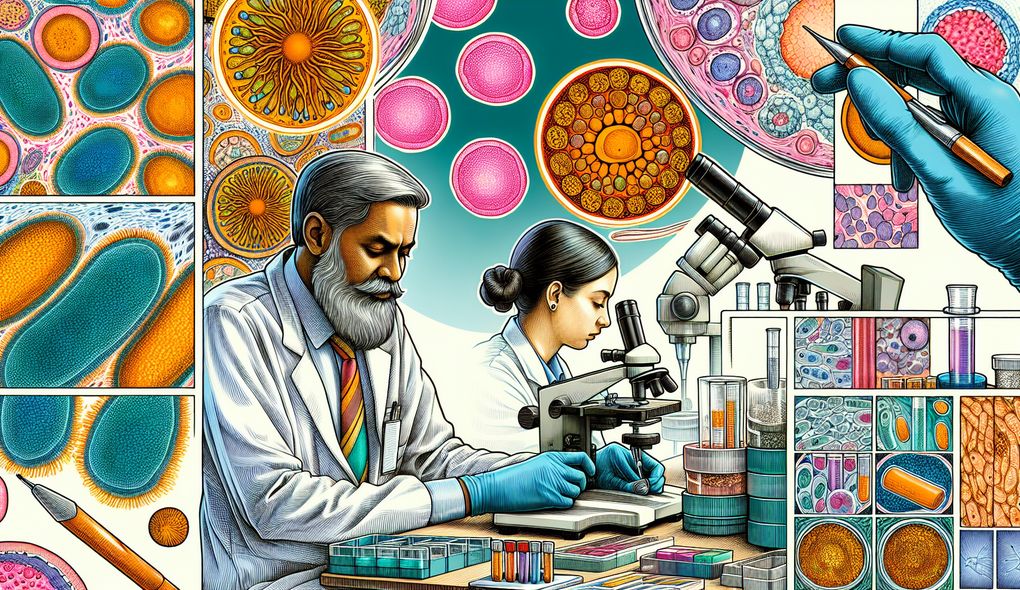What strategies do you use to effectively communicate with patients and reassure them during the diagnostic process?
SENIOR LEVEL

Sample answer to the question:
To effectively communicate with patients and reassure them during the diagnostic process, I rely on a combination of empathy, clear explanations, and active listening. I understand that the diagnostic process can be stressful for patients, so I make an effort to create a supportive and compassionate environment. I take the time to listen to their concerns and answer any questions they may have. I use simple and jargon-free language to explain the procedures and the reasons behind them. Additionally, I provide regular updates on the progress of the diagnosis and communicate the results in a sensitive and empathetic manner.
Here is a more solid answer:
To effectively communicate with patients and reassure them during the diagnostic process, I employ a range of strategies. Firstly, I approach each patient with empathy and understanding, acknowledging that the process can be overwhelming. I take the time to actively listen to their concerns and address any anxieties they may have. Secondly, I use clear and jargon-free language to explain the procedures and the reasons behind them, ensuring that the patient understands the process and feels informed. Additionally, I provide regular updates on the progress of the diagnosis, keeping the patient involved and engaged in their healthcare journey. Lastly, I deliver the results in a sensitive and empathetic manner, being mindful of the potential impact the information may have on the patient. By utilizing these strategies, I aim to create a supportive and compassionate environment that instills confidence and trust in the patient.
Why is this a more solid answer?
The solid answer expands on the basic answer by providing specific strategies and approaches to effectively communicate with patients during the diagnostic process. It demonstrates the candidate's experience and skills in areas such as empathy, clear communication, and active involvement of the patient. However, it could still benefit from more specific examples or anecdotes to further illustrate the candidate's proficiency in these areas.
An example of a exceptional answer:
To effectively communicate with patients and reassure them during the diagnostic process, I have developed a comprehensive approach that integrates empathy, clear communication, and personalized care. Firstly, I establish a rapport with the patient by actively listening to their concerns and validating their emotions. I take the time to build trust and create a safe space for open communication. Secondly, I customize my communication style to meet the individual needs of each patient. For example, some patients may prefer visual aids or diagrams to understand the diagnostic procedures, while others may prefer written information. By adapting my approach, I ensure that the patient feels empowered and involved in their healthcare decisions. Furthermore, I anticipate potential questions or concerns that patients may have and proactively address them during the communication process. By being proactive, I help alleviate anxieties and provide a sense of reassurance. Finally, I follow up with patients after the diagnosis, offering further support and guidance. By implementing these strategies, I have consistently received positive feedback from patients, who appreciate the personalized and compassionate care they receive.
Why is this an exceptional answer?
The exceptional answer goes beyond the solid answer by providing a comprehensive and detailed approach to effectively communicating with patients during the diagnostic process. It showcases the candidate's ability to build rapport, customize communication, anticipate patient needs, and provide ongoing support. The answer is supported by specific examples and highlights the candidate's track record of receiving positive feedback from patients. It encompasses the essential skills and qualities outlined in the job description, such as empathy, clear communication, and the ability to work in a multidisciplinary team.
How to prepare for this question:
- Familiarize yourself with the diagnostic procedures commonly used in cytopathology and be able to explain them in simple terms.
- Practice active listening skills to ensure that patients feel heard and understood.
- Develop a repertoire of visual aids or diagrams to enhance the communication of complex ideas or procedures.
- Stay informed about the latest advancements in cytopathology and be prepared to discuss them with patients.
- Role play scenarios where patients may express anxiety or concern to practice responding effectively and reassuringly.
What are interviewers evaluating with this question?
- Communication
- Empathy

